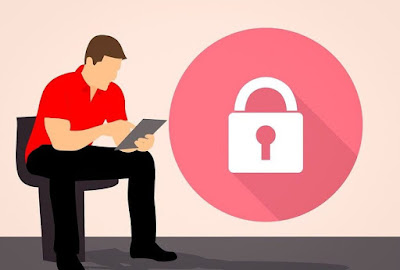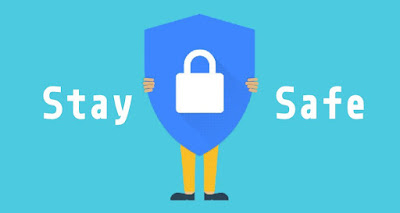In detailing the cybersecurity threats that are having an outsized impact on online safety, we must pay special attention to the actions of government-sanctioned malware attacks, IoT attacks on interconnected devices, cryptojacking, hacking of electronic medical records and smart medical devices, social engineering, hacking of semi-autonomous vehicles and connected cars, and ransomware, et al.
These threats are real, and they’re happening right before our eyes. These are in addition to everyday attacks on our systems, such as malware, adware, Trojans, viruses, phishing, and pharming. Experts warn against complacency. It is important to identify all of the technologies that are available for rebuilding infrastructure to protect against imminent threats. It is also necessary to be able to detect threats to the integrity of online systems and to respond to these incidents as quickly and effectively as possible. Once the appropriate responses have been taken, the recovery process begins in earnest.
Naturally, there are different approaches to achieving cybersecurity. These include network security, effective management processes for users, education and awareness initiatives for increasing training, adoption, and implementation of safe online habits, incident management systems, malware prevention defences, constant monitoring of all systems, Internet networks, and logs, controls on removable media, policies for mobile work policies for removable media, and secure network configurations. Strict adherence to these tenets can go a long way towards maintaining cyber safety.
WHAT STEPS CAN YOU TAKE TO SAFEGUARD YOUR MOBILE SECURITY, PC SECURITY, AND MAC SECURITY?
The security of your IoT (Internet of Things) devices extends well beyond simply downloading the latest antivirus software. There are scores of incremental, complementary, and stand-alone approaches to adopt. It all begins with a bottom-up approach to securing your online connectivity. At the most basic level, users must ensure that all operating systems are up-to-date at all times. Patches, fixes, updates and security adjustments need to be made. These run the full gamut from the browser you are using to the behind-the-scenes metadata that you’re leaving behind every time you browse the Internet.
Your privacy settings are sacrosanct. Try to strike a balance between maximum privacy and an optimal browsing experience – it’s not as easy as it seems. Your Internet connection itself needs to be as safe and secure as possible. A chain is only as strong as its weakest link, and a poor Wi-Fi connection, weak password, or free for all when it comes to using IoT devices on the same network can prove damaging to your person in more ways than one. Set a cryptographically secure password that is safely stored in a locked virtual vault preferably behind firewalls, and other password-protected access points.
Never browse the Internet over unsecured Wi-Fi networks. All public Wi-Fi is risky, so avoid it by using a virtual private network to obfuscate your true IP address, or simply use your iPhone hotspot to securely connect your Mac to the Internet while you are in public. If you absolutely have to use the public Internet, try to limit your activity to non-sensitive browsing (no online banking, no e-commerce). The amount of time you spend online is another factor in mitigating the potential for a viral attack.
Consider too much screen time as excessive exposure to the ‘viral load’ that exists out there on the World Wide Web. If you keep your public Wi-Fi browsing sessions to a minimum, you reduce your overall risk tremendously. Once you are up and running on the Internet, you will likely be using credit cards, debit cards, and other online banking methods to process transactions. Limit the amount of funds available per payment method so that you can mitigate any potentially fraudulent activity that may come your way.
INTRODUCING POWERFUL SECURITY APPS FOR SAFE MOBILE BROWSING
The process of browsing websites is arguably the most important point on this list. How can you tell which websites are safe and secure, and which websites are best avoided? The answer it seems is found in powerful downloadable apps such as MyWOT. This app can easily be downloaded and installed via the Google Play Store, allowing users to get an instant snapshot of community-based ratings of specific URLs, links, websites, or content online. If something is deemed unsafe, it gets red-flagged and marked for deletion. If for example, you receive an email from a dodgy source, MyWOT will be able to identify all types of scams and alert you accordingly.
With some 140 million+ users as part of the MyWOT mobile security network, it is easier than ever to be steered away from faulty apps, fraudulent websites, and all sorts of phishing, pharming, and Trojan attacks. Internet safety is all about planning for your browsing sessions. It cannot be stressed enough that users are largely responsible for what happens to them. When you’re not actively browsing the Internet, log out of your accounts and shut down your computer. The last thing you want is a minor accessing 18+ content, or an unauthorized user simply picking up where you left off. Criminals realize that virtual credit card information, cryptocurrency, IDs, biographic data, and online profiles are ripe for the picking; avoid all the noise by starting off on the right foot.
Sometimes, we are also responsible for the threats levelled against us. As a case in point, never upload personal photographs, revealing content, or compromising content that could come back to haunt you. Ransomware is alive and well, and so are Trojan viruses, bots, and other forms of malware. It goes without saying that you should never transfer money from your personal count to sources that are deemed invalid.
Young people’s Internet education is just as important as senior Internet education. Young people are too trusting, and so are seniors, so it is vital that the right security messaging gets to the right people. Safety and security begin with the hardware, then move to the software (spyware, malware, and viruses) focus on what needs to be done, and then go about doing it!









0 Comments
Please do not enter any spam link in the comment box.